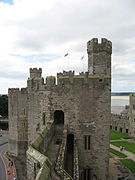 The most beautiful woman in the world? The face that launched a thousand ships? Bitch-goddess and general whore? Sad victim of an abduction? Or just one of the many made-up figures of Greek mythology? Of course, like all the heroes of her long-ago epoch, Agamemnon, Menelaus, Achilles, Priam, Hector, we have no historical or archaeological evidence for her existence, just the stories told by poets like Homer hundreds of years after the possible events of the Trojan war.
The most beautiful woman in the world? The face that launched a thousand ships? Bitch-goddess and general whore? Sad victim of an abduction? Or just one of the many made-up figures of Greek mythology? Of course, like all the heroes of her long-ago epoch, Agamemnon, Menelaus, Achilles, Priam, Hector, we have no historical or archaeological evidence for her existence, just the stories told by poets like Homer hundreds of years after the possible events of the Trojan war.
Even her birth is fantastic. Was she the daughter of Tyndareus, King of Sparta, and his wife Leda? Or was she the result of a rape by Zeus in the form of a swan? Did she come from an egg? Was her brother Pollux also the son of the god? But whatever the story, all the legends agree that she was exceptionally beautiful; so much so that when she was only a child, the lecherous Theseus abducted her; though she was protected by his mother Aethra, and eventually rescued by her magical twin brothers. And then there are the stories of her marriage, and the suitors who couldn’t agree and became violent. Cunning Odysseus came to the rescue as he so often did, getting the young men to sign an agreement that they would abide by Tynareus’s choice, but if ever she was in danger they would come to her rescue; words that sounded good, but were eventually to lead to one of the greatest wars of ancient days.
Nothing in Greek mythology is ever simple; characters act, not from free will, but because they are caught in tangles of actions and reactions and recriminations ordained by the gods. And when the goddess Aphrodite promised the young Paris of Troy that he could have the most beautiful woman in the world for his wife, she was throwing out one of those disastrous threads into the world. Helen left her husband Menelaus to elope with Paris, but maybe she was simply trapped in the goddess’s plan.
But there are many strange things in Helen’s story; one of the oddest, told by several ancient writers, is that she never went to Troy at all, but stayed in Egypt for the duration of the war, and the Trojans saw only a ghostly facsimile of her. Perhaps this indicated an Egyptian cult of her as a goddess. There was certainly a cult of her and her husband Menelaus in ancient Sparta – archaeologists have found a shrine to them both, though they haven’t yet managed to find the splendid palace where she went on to live with Menelaus for many years in apparent harmony, after all the other Trojan participants in the war had been slaughtered or enslaved. (in ancient times, it seems that Sparta wasn’t ‘Spartan’ as we understand it now – that came later in classical times under Leonidas – in heroic times it was a wealthy and luxurious place.)
So was she the subject of a prehistoric cult, and her beauty only an attribute added to the story by later poets? Had an abduction of a royal woman by a piratical Trojan led to a long war? Was a city of Troy – whose ruins were more or less destroyed in the twentieth century in the name of archaeology by Heinrich Schliemann – destroyed in the 13th century BC by victorious Achaeans? What happened to the abducted princess then? Who were the heroes that surrounded her story; Hector, Achilles, Odysseus? We’ll probably never know, but the mystery is an exciting one for poets and writers and artists.
